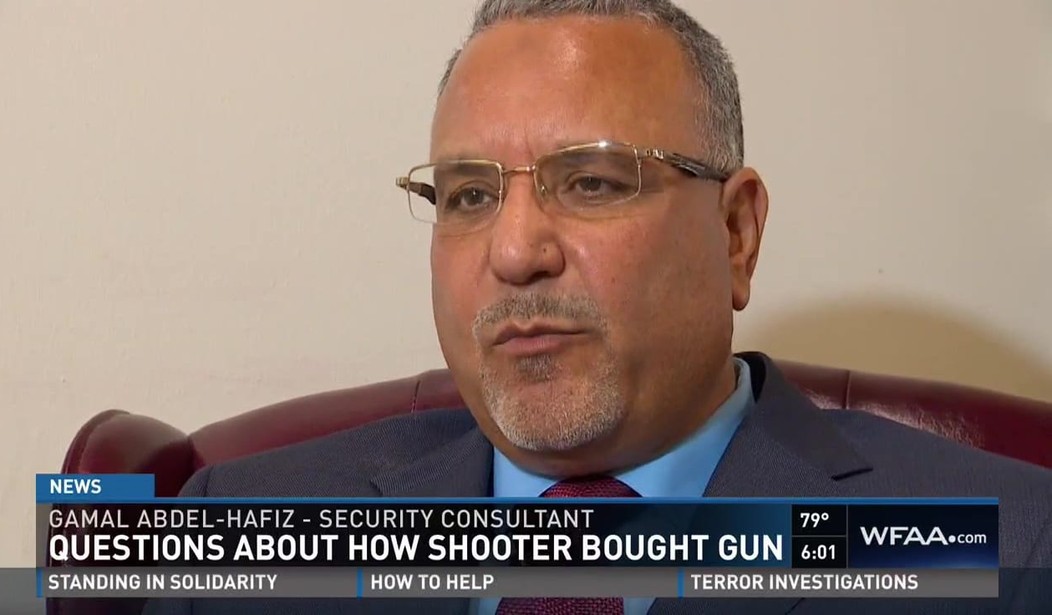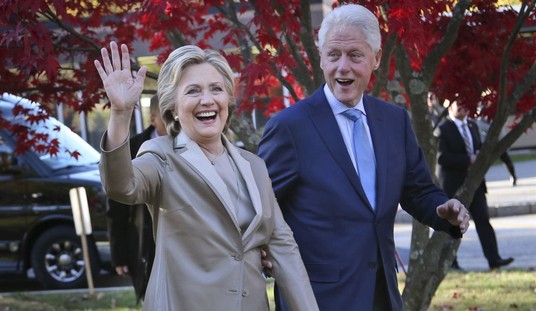Following the terror attack in Orlando, the dominant media/political narrative turned to gun control and now-discredited claims of the suspect’s mental illness (claims which included gay-baiting).
Now, one controversial former FBI agent — and current consultant to the Obama administration on “countering violent extremism” (CVE) — is suggesting a national gun registry be created. Such a registry would target millions of law-abiding American citizens.
Gamal Abdel-Hafiz, born in Cairo, immigrated to the U.S. in 1990. He recently retired from the FBI after 22 turbulent years at the bureau. Following the Orlando attack, Abdel-Hafiz explained his rationale for creating a national gun registry:
A former FBI counter-terrorism agent says lawmakers could make mass murders less likely. “What we need to do is keep the ownership of guns known to the government, so we know who has what,” said security consultant Gamal Abdel-Hafiz. “And I know a lot of people are against that.”
He also defended the FBI’s handling of the Mateen case, despite the FBI having conducted multiple interviews with the killer based on statements and threats of violence he had made, and then shutting down the investigation:
“He shouldn’t have been able to buy a gun legally. He shouldn’t,” said Abdel-Hafiz about 29-year-old Omar Mateen. He says 3 FBI interviews should have been enough to keep Mateen on the radar, but he also knows why he wasn’t. “Once you investigate someone and clear them, you have to remove them from the watch list by law,” he explained Monday from his office in Dallas.
And even if Mateen had been on a terror watch list, or no-fly list, that would not have prohibited him from legally buying weapons, including a high-velocity semi-automatic assault rifle.
“That means the list is useless then,” the former agent said. Efforts to ban weapon sales to those on watch lists have been blocked in Congress. Some lawmakers say the lists could violate a person’s Second Amendment rights. “As long as our politicians keep fighting each other for the sake of fighting each other, more innocent people will keep on dying,” he said.
Remarkably, he admits that the various terror watch lists and no-fly lists are useless. Moments after suggesting another list. He doesn’t explain how a national gun registry — yet another government list targeting millions of law-abiding Americans — would prevent another terror attack.
It’s unlikely that Abdel-Hafiz would agree to a facially unconstitutional registry of Muslim Americans. So why is he agreeable to attempts to strip Americans — including perhaps thousands of Muslim Americans — of their Second Amendment rights without the conviction of any crime?
The WFAA interview concludes with this ominous detail:
Gamal Abdel-Hafiz is now consulting on a government counter violent extremist project to reduce the threat of homegrown terrorists. He’s an avid gun owner. But he says the carnage in Orlando shows that gun law must be part of the conversation.
Abdel-Hafiz is advising the Obama administration on its disastrous “countering violent extremism” policies that were very likely more responsible for the mass killing in Orlando than any current gun law. As someone advising Homeland Security and law enforcement agencies on “countering violent extremism,” it raises the issues surrounding his controversial tenure with the FBI.
In December 2002, ABC News reported accusations by two veteran FBI investigators that Abdel-Hafiz interfered in ongoing terror investigations:
Perhaps most astounding of the many mistakes, according to Flessner and an affidavit filed by Wright, is how an FBI agent named Gamal Abdel-Hafiz seriously damaged the investigation. Wright says Abdel-Hafiz, who is Muslim, refused to secretly record one of al-Kadi’s suspected associates, who was also Muslim. Wright says Abdel-Hafiz told him, Vincent and other agents that “a Muslim doesn’t record another Muslim.”
“He wouldn’t have any problems interviewing or recording somebody who wasn’t a Muslim, but he could never record another Muslim,” said Vincent.
Wright said he “was floored” by Abdel-Hafiz’s refusal and immediately called the FBI headquarters. Their reaction surprised him even more: “The supervisor from headquarters says, ‘Well, you have to understand where he’s coming from, Bob.’ I said no, no, no, no, no. I understand where I’m coming from,” said Wright. “We both took the same damn oath to defend this country against all enemies foreign and domestic, and he just said no? No way in hell.”
Far from being reprimanded, Abdel-Hafiz was promoted to one of the FBI’s most important anti-terrorism posts, the American Embassy in Saudi Arabia, to handle investigations for the FBI in that Muslim country.
Abdel-Hafiz was ordered fired in May 2003 by the FBI’s top disciplinary officer for a variety of personal and professional problems, including insurance fraud and mismanagement of important 9/11-related files at the bureau’s office in Riyadh.
The ordering firing Abdel-Hafiz was later overruled in 2004 by a special three-man panel convened to hear the case. As Newsweek reported, his reinstatement coincided with efforts by the FBI to hire more Muslim and Arabic-speaking personnel.
Despite his reinstatement, controversy continued to follow the troubled FBI agent.
As the New York Times reported just last year, the reinstated Abdel-Hafiz was placed in the bureau’s Post-Adjudication Risk Management program in 2012 that stripped him of access to certain classified material that he claimed was necessary to do his job.
Yet now he is advising the Obama administration on their “countering violent extremism” policies. We have heard disturbing reports recently from other “CVE” advisers, such as one who said that the 9/11 terror attacks “changed the world for good” and another who blamed 9/11 on Israel.
This should raise serious concerns about the quality of “CVE” advice the administration receives.









Join the conversation as a VIP Member